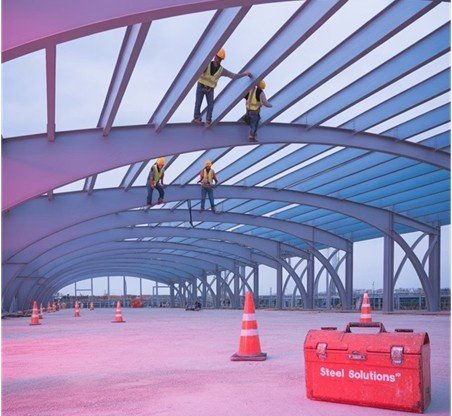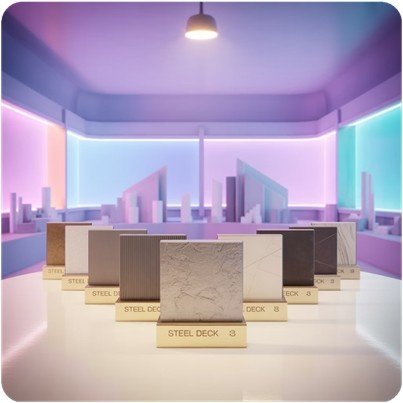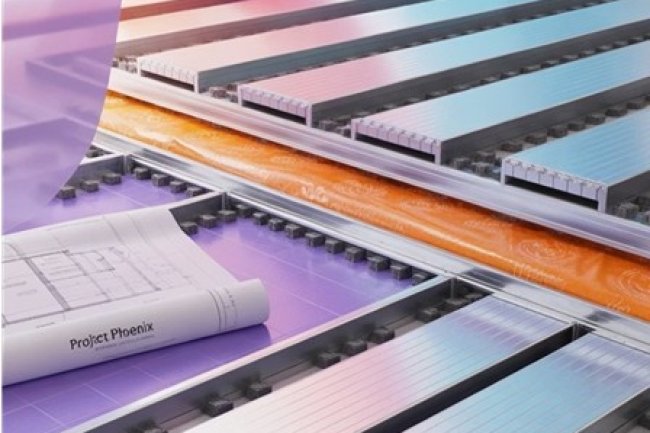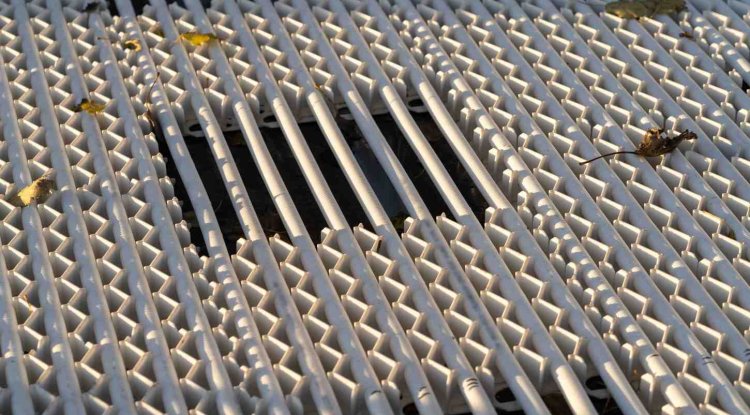Cost-Efficient Deck Fabrication Strategies
Balancing cost savings with safety is the key to successful deck fabrication. With the right approach, expenses can often be reduced by 15–25% while still meeting the highest safety standards. This ensures projects remain profitable without sacrificing structural integrity.

The Foundation: Material Selection & Planning
|
Strategic Material Choices Standardized dimensions and easily available profiles also lower procurement costs. Using common deck profiles such as 1.5", 2", and 3" depths supports bulk purchasing power and faster delivery schedules—directly improving the bottom line. |
|
Since material costs account for 60–70% of total deck fabrication expenses, smart selection is critical to project success.
Advanced Design Optimization Techniques
Leverage modern engineering strategies to minimize material usage, reduce costs, and enhance constructability—all while maintaining code compliance.
Span Optimization
Maximize deck spans to reduce support requirements. Longer spans mean fewer beams, columns, and connections— resulting in significant material and labor savings.
Load Path Analysis
Optimize load distribution through deck orientation and profile selection. Computer modeling identifies efficient configurations before fabrication begins.
Connection Simplification
Standardize connection details to reduce fabrication complexity. Fewer unique connections enable faster installation, lower labor costs, and improved quality control.
Modern Fabrication & Technology Solutions
Automation and precision manufacturing transform today’s fabrication process. With CNC and automated cutting systems, material utilization rates reach 95%+— compared to only 80–85% using traditional methods.
01
Digital Design Integration
BIM models feed directly into fabrication equipment, eliminating translation errors and reducing rework. Integrated design-to-fabrication workflows streamline the entire process.
02
Just-in-Time Production
Coordinated scheduling reduces inventory costs and storage needs. Materials arrive exactly when required, lowering handling expenses while keeping projects on schedule.
03
Quality Control Systems
Automated inspection technologies detect defects early, preventing costly field corrections. Consistent quality helps reduce warranty claims and maintain safety standards.
Installation Efficiency & Safety Protocols
|
|
Streamlined Installation Methods Modular installation sequences enable multiple crews to work simultaneously without interference. This parallel workflow speeds up project completion and significantly reduces overhead costs. Integrated Safety Systems in Deck Design
|
Safety-First Approach
Built-in features such as pre-installed anchor points and standardized fall protection systems safeguard workers while simplifying installation. This proactive strategy prevents accidents and avoids costly project delays.
Long-Term Value & Performance Benefits
The key to successful cost-efficient deck fabrication lies in viewing safety and economy as complementary objectives, not competing ones. Systematic implementation ensures lasting value through reduced lifecycle costs, improved performance, and enhanced safety outcomes.
25%
Cost Reduction
Average savings through integrated cost-efficiency strategies without compromising safety standards.
15%
Faster Installation
Reduced installation time through optimized design and pre-fabrication techniques.
99%
Safety Record
Incident-free installation rate when following comprehensive safety protocols.
What's Your Reaction?


















